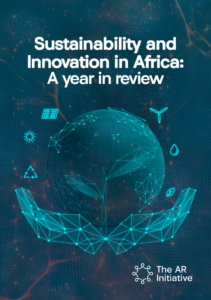 The Sustainability and Innovation in Africa: A Year in Review examines the impact investing landscape in Africa, exploring emerging trends and highlighting opportunities for investors and stakeholders to make more significant investments in the region.
The Sustainability and Innovation in Africa: A Year in Review examines the impact investing landscape in Africa, exploring emerging trends and highlighting opportunities for investors and stakeholders to make more significant investments in the region.
With the global impact investing market valued at an impressive $1.164 trillion, Africa presents an attractive potential market of up to $500 billion. However, the region requires $256 billion annually to meet the Sustainable Development Goals (SDGs).
Venture Capital (VC) activity has played a pivotal role in spurring innovation in Africa, particularly in early-stage startups operating in sectors like sustainable agriculture, food security, and climate technology. Notably, Kenya took the lead in innovation and technology in 2022, with Kenyan startups securing over $1.8 billion in funding, followed by South Africa with over $1.1 billion and Nigeria with more than $650 million.
Fintech expectedly dominated the funding landscape for African startups in 2022. However, startups that focused on sustainability-driven innovations received significantly less investment, highlighting the stark contrast in the distribution of investment capital. Moreover, the gender equity gap in startup funding persists as only 7.57% of disbursed funds went to female-led startups.
Due to the ongoing impact of the pandemic on investor behaviour, startups have increasingly turned to mergers and acquisitions as a means to address liquidity shortages and concerns about raising subsequent rounds of funding. A review of startup funding, acquisitions, and expansions in Africa in 2022 revealed a total of 43 acquisitions happened, a 34.4% increase from 2021. 16 African startups also expanded in 2022, with Nigerian startups leading in Q3 2022.
To advance sustainable development, startups require an enabling regulatory environment that facilitates innovation and investment in sustainable technologies. While countries are in different stages of implementing laws to foster this environment, the Nigerian Startup Act and DRC’s Startup Act are two examples of legislation aimed at reducing the engagement gap between new businesses and regulators, offering tax incentives to foreign service providers, and providing tax cuts for new enterprises.
In order to ensure that startups and innovations receive funding based on merit rather than biases such as gender, it is necessary to prioritise transparency in funding allocation and implementing unbiased selection processes. Sustainable startups and innovations are critical to achieving the Paris Agreement and securing a sustainable future for Africa.
Overall, Sustainability and Innovation in Africa: A Year in Review highlights the immense potential of the African startup ecosystem to drive sustainable development and the need for stakeholders to work together to address challenges and capitalise on opportunities.
Download the full report here…